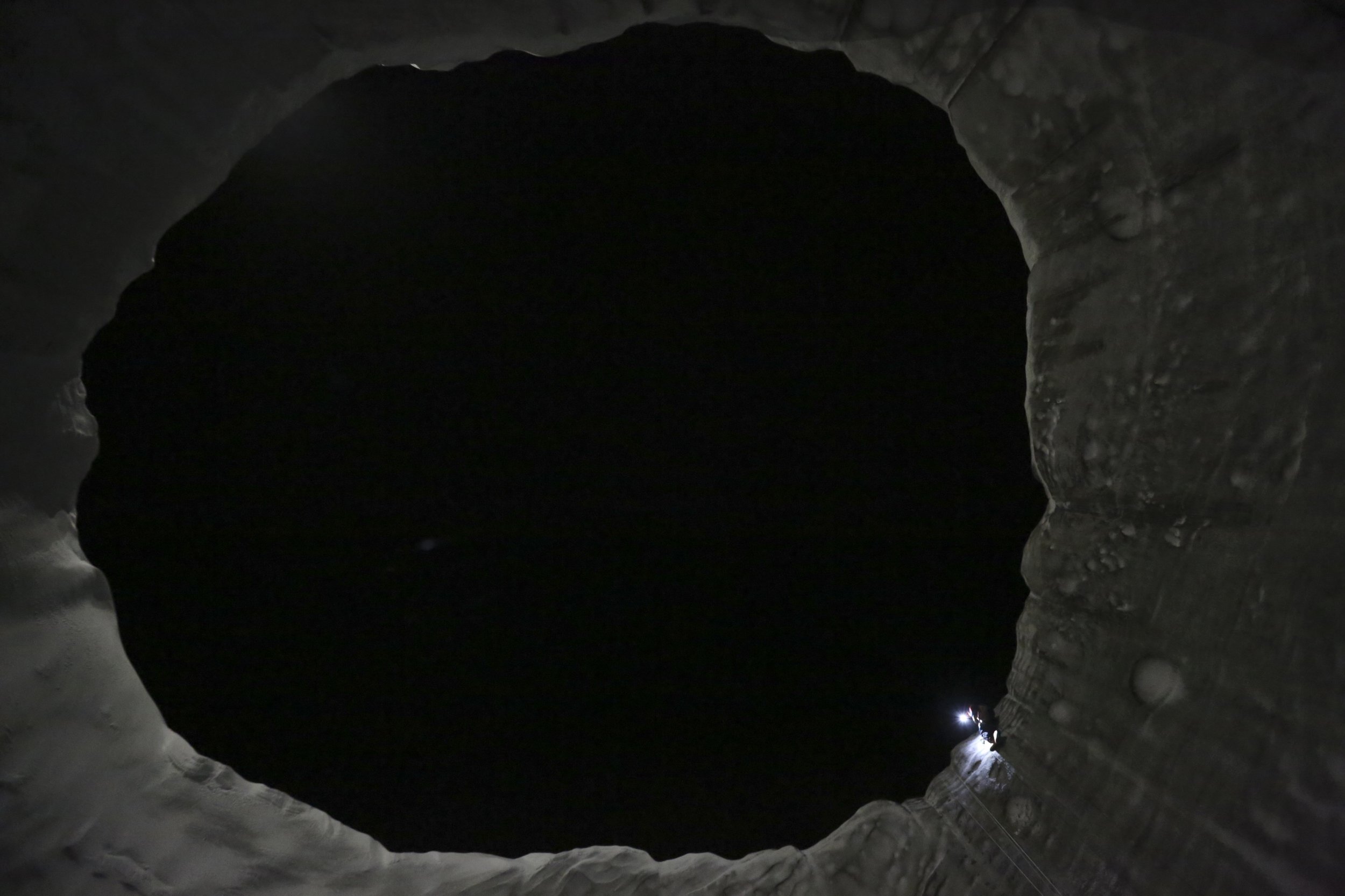Did You Know That Space Is Silent
The Sound of Infinite: Why The Cosmos Isn't As Quiet Every bit You'd Recollect

This commodity was originally published on The Conversation. Read the original article.
Nosotros know that there is sound on planets and moons in the solar system—places where there's a medium through which audio waves can be transmitted, such as an temper or an ocean. Only what about empty infinite? You may have been told definitively that space is silent, maybe by your teacher or through the marketing of the pic Conflicting—'In infinite, no one can hear you scream.' The common explanation for this is that infinite is a vacuum and and then there'due south no medium for sound to travel through.
Merely that isn't exactly correct. Space is never completely empty—there are a few particles and sound waves floating around. In fact, sound waves in the space around the Globe are very of import to our connected technological existence. They also sound pretty weird!
Space sounds.
Fundamentally, sound waves are oscillations in pressure that travel through the medium that they're in. In nigh cases, this is a series of compressions where molecules are closer together, and rarefactions, where they are further apart—caused by the molecules themselves moving backward and frontwards. Here on the ground there is quite a lot of air around—each square centimetre of it contains 300,000,000,000,000,000,000 molecules. In contrast, in interplanetary space on average you'll detect just five protons (which make up the atomic nucleus with neutrons) in the same volume—nearly completely empty in comparison… but non quite.
Notice how I say protons, because infinite (similar 99.ix% of the unabridged universe) isn't filled with gas just with plasma–a different country of matter made of charged particles. These charged particles hateful that plasma can accept some different properties: for instance, they tin can generate and be affected by electrical and magnetic fields. These kinds of interactions tin can give rising to the plasma-equivalent of sound waves: magnetosonic waves. These also are force per unit area waves, but with some added magnetism.
We can't hear these magnetosonic waves in space. That is because the pressure variations are so modest: a -100dB sound-pressure level level (the human being hearing threshold is about +60dB). In fact, yous'd need an eardrum comparable to the size of the Earth to hear them. Their ultra-depression frequencies are also manner below what we would be able to hear. So if we tin't hear them, why do nosotros care about them?
Well, in Earth's magnetosphere—the protective magnetic bubble nosotros live in that largely protects united states of america from various dangerous forms of infinite radiations—these magnetosonic waves can transfer energy around. For example, they can give it to the radiations belts, donuts of radiation surrounding the Earth, creating 'killer electrons' at extreme energies that can impairment our satellites if we're non conscientious. This is why I study these waves–if we tin can predict when, where and why these waves occur in the space effectually the Globe, and so nosotros could forecast when our satellites might exist in problem and put them into a safety style.
Recording the inaudible
One of the ways we listen out for these sounds is using geostationary satellites that primarily monitor the weather. Equally well equally all those instruments that can tell y'all whether to pack an umbrella, they accept 'magnetic microphones' that can detect these waves. The problem for scientists is separating out all the dissimilar types of audio that are present in infinite. Fortunately, it turns out the human auditory system is pretty good at this sort of thing, some have even called it the all-time pattern recognition software that nosotros know of. For this very reason, I'chiliad request for you to lend me your ears.
By amplifying these space sounds and squashing them in time so a whole year becomes just half-dozen minutes, they tin be made aural. The audio has been uploaded to SoundCloud, where you lot can provide comments on what you recollect diverse bits of it audio like. There is so much going on in these sounds, but crowdsourcing comments on them will help identify different types of moving ridge events and ultimately help with the scientific research. And so have a listen to some pretty odd sounds from space, because only you can tell me what you lot hear.
Martin Archer is a Space Plasma Physicist at Queen Mary University of London
murphycomenclater.blogspot.com
Source: https://www.newsweek.com/space-empty-space-aliens-sound-waves-listening-525073
0 Response to "Did You Know That Space Is Silent"
Post a Comment